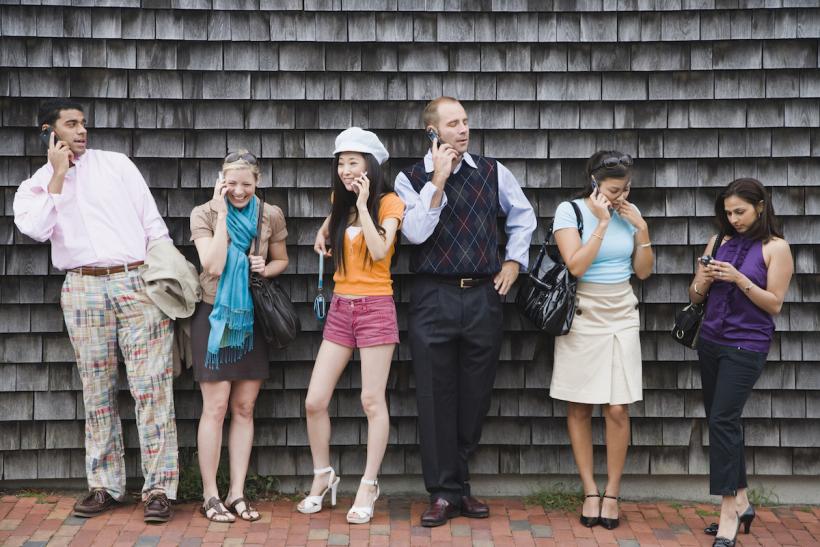
image credit: Thinkstock
I cringe when Kim Kardashian opens her pouty lips because I know the onslaught of vocal fry is about to begin. But as much as I hate Kardashian's affected speech, I hate my reaction to it even more. Sure, vocal fry is friggin' obnoxious. It's part of the Hollywood machine. I already spend enough of my time and emotional energy resisting what Tinsel Town says I, a 20-something American female, should want by default of my age and gender.
Yet the way I respond to vocal fry is no less annoying.
Here I am pointing fingers at the Kardashian women for sounding vapid, when judging someone based on the way they sound is no less superficial.
I might be less aware of my hypocrisy if I weren't the daughter of an immigrant. My mother speaks English as a second language and people's judgment of her accent has always bothered me. The mocking or criticism normally comes from people who are monolingual and, whether they realize it or not, insecure about the fact that my mother speaks two languages when they only speak one. My mother just so happens to speak one of those languages with an apparent but perfectly understandable accent.
As my high school Spanish teacher once told my class, it's far better to speak a language with an accent than it is to not speak it at all. Yet some people see my mother's accent as an invitation to immediately ask where's from, because they need a reason to reject her, to question her worth and put her down. When my mother hears this question she normally replies with the name of the Virginia town where I grew up. That throws most people off enough to realize they asked an irrelevant and somewhat rude question. (Way to go, Mama.)
When I speak, I sometimes have to be careful, too. I don't speak English with a foreign accent, but as someone born and raised south of the Mason Dixon line (even if it was suburban Washington, D.C.), I do pronounce certain words with a slight drawl. You can bet I get questions about that now that I live in New York City. I've yet to hear anything unmerciful about it, but the fact that people ask makes me feel like an outsider in a town that cradles no one. If every Big Apple newcomer feels like an outsider at some point, then regional accents—the way our voices sound when we talk and the way people perceive those sounds—definitely contribute to the feeling of alienation.
That's why people with particularly distinctive accents often work so hard to bury them. They fear judgment.
What should matter most is what we say. Content comes first. The sound of our voice should come second. You could have the most "perfect," most distinguished sounding voice of an upper-class American who graduated from an Ivy and vacations in Nantucket, but that doesn't matter if you're spewing B.S. Crap is still crap. Unfortunately, when most people—OK, women because it's pretty much always women who get judged for this—talk with vocal fry, their audience shuts down.
I try so hard not to think "airhead" whenever I hear someone speak with vocal fry. Inevitably, my first thought is "she's an airhead," anyway. Then I have to chide myself and do mental gymnastics in order to convince myself that the person talking is not, in fact, an airhead. By this point, I've been so busy listening to the little voice inside my head that I haven't been giving Ms. Vocal Fry my full attention. So whatever the content of her message was is suddenly lost and I get mad at myself for not actively listening.
Because as much as I loathe vocal fry, I hate that I hate it even more. The judgment must end.







